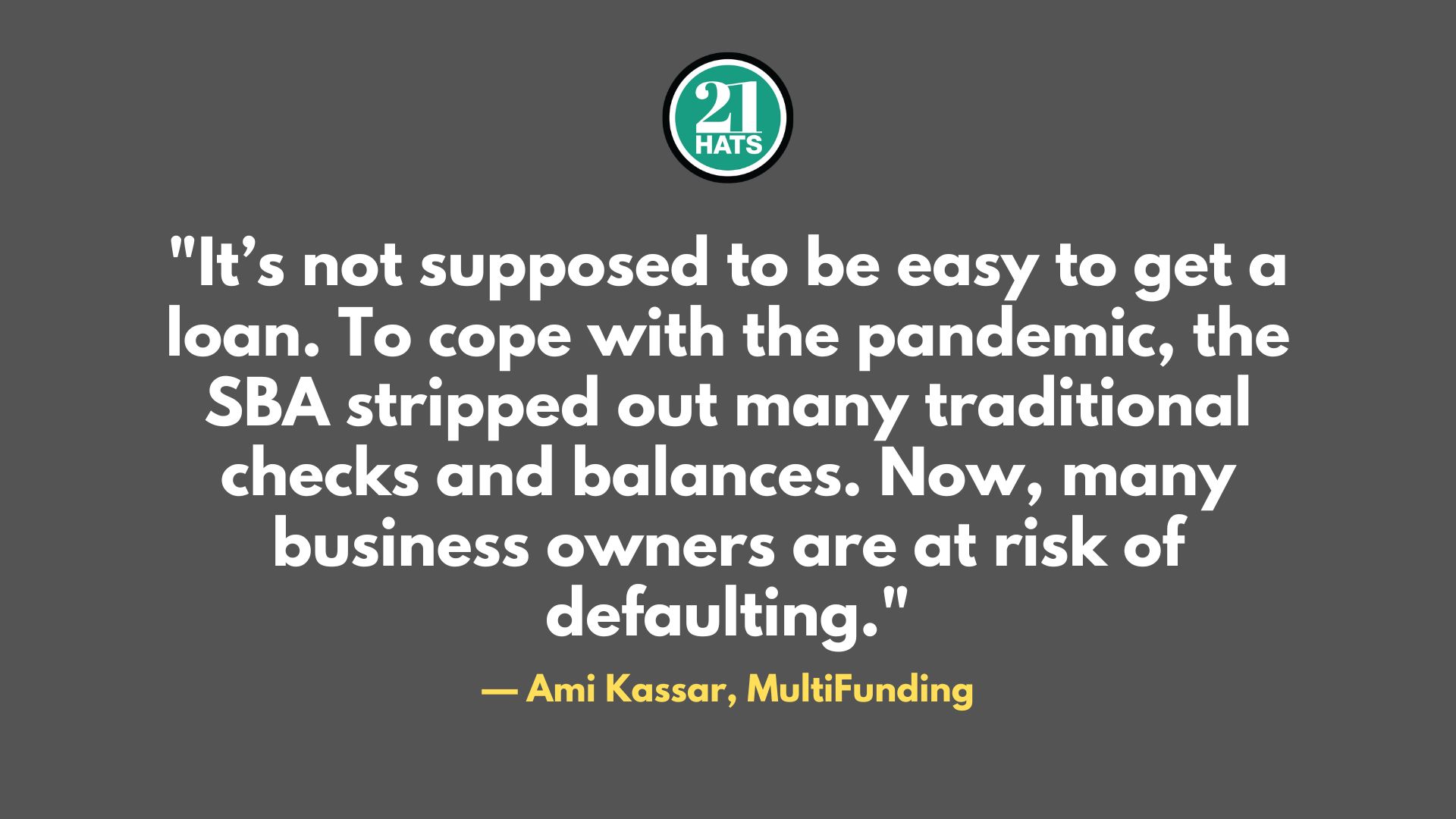The SBA’s New Leader Will Face Real Challenges

Defaults on Covid-era lending have left a cloud hanging over the agency. Can it learn from its mistakes without forfeiting its mission?
By Ami Kassar
Last night, Donald Trump nominated Kelly Loeffler to be administrator of the Small Business Administration. Assuming she is confirmed by the Senate, where she used to serve, Loeffler will have to make some tough decisions and navigate some tricky questions in Congress. Let me explain.
The Covid-19 Economic Injury Disaster Loan portfolio is an ongoing headache for the SBA and is putting a cloud over the agency. Last week, Debanked, a media company that calls itself a guide to nonbank finance, reported that cumulative EIDL charge-offs of this portfolio now exceed $70 billion. And with an outstanding principal balance of more than $277 billion, there is still plenty of blood likely to be spilled. Loeffler, the incoming SBA head, will have plenty of tough policy calls to make with this portfolio, calls that will have to balance the government’s responsibility to protect taxpayers with its responsibility to support the long-term success of borrowers.
I hope the new SBA administrator will not allow this black cloud to damage the long-term vision of the SBA or its disaster-loan program. It’s worth pausing to remember the fundamental goals of the EIDL program. When a natural disaster such as a hurricane or tornado causes significant damage, the program is designed to offer business owners long-term, low-interest, government-backed loans that help them rebuild and recover.
EIDL was created to handle the aftermath of a hurricane or a tornado in a specific regional area. It was not designed to handle crises that hit the entire country. About 4 million EIDL loans were issued during the height of Covid-19. The SBA simply did not have the infrastructure or the systems in place to handle all of the loans, especially given the need to get money out on the street as quickly as possible. And to double down on the challenges, many businesses that got EIDL loans were not in good shape before Covid, which made recovery and loan repayment even more of a challenge.
Let me be clear. There are plenty of lessons to learn from the Covid-19 debacle, especially concerning how average loan sizes increased 10 times during efforts to get the money out the door before the budget ran out. These mistakes should be learned from – but not at the expense of the program’s future. There has already been plenty of fighting and fingerpointing in Washington, D.C. Today, EIDL coffers are dry, and applications are on hold for small businesses hurt by recent natural disasters in the South.
Even traditional SBA lending must confront some tough realities. About 18 months ago, the agency started to roll out new rules designed to make it easier for small businesses to get loans. In doing so, the agency eased many of its traditional requirements in order to get more capital into the hands of business owners as quickly as possible.
The result so far: Early defaults—loans that default in the first 18 months—have increased 213 percent over the past 18 months. This means that the new looser requirements are increasing defaults, and if these issues are not addressed, there could be long-term ramifications for the program. The new administration will have to decide what rules will stay and what rules will not.
Changing SBA rules is not an easy or quick process. It takes time, and there are many layers and implications. However, the effects of the recent changes must be analyzed, or we will soon run the risk that the overall program will require government subsidies instead of operating independently.
A common thread in these issues is a lesson that I hope will not be forgotten: It’s not supposed to be easy to get a loan. To cope with a once-a-century pandemic, the government deliberately stripped out many of the traditional checks and balances in the EIDL program and made changes to the SBA program. And now, many business owners are at risk of defaulting to the U.S. government, which means taxpayers will have to pick up the tab. I hope that we will learn the appropriate lessons and tighten up the rules where necessary while allowing the SBA to keep its light shining for many decades to come.
Ami Kassar is CEO of MultiFunding.